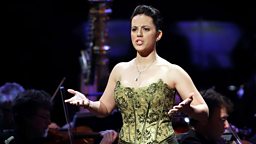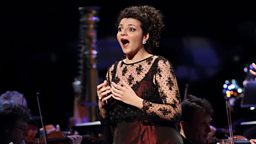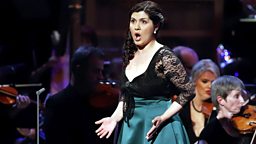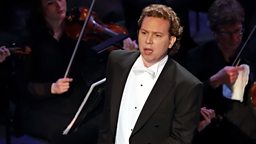Poland: Michał Partyka
Baritone - born 1985
Michał Partyka was born in Szczecin. He graduated from the Academy of Music in Poznań, where he studied with Jerzy Mechliński and has been a member of the Atelier Lyrique at the Opéra National de Paris since 2009. In 2008 he recorded Stanisław Moniuszko’s operas Flis and Verbum Nobile with Castle Opera Szczecin.
At the Atelier Lyrique, he has participated in concerts at the Palais Garnier with the Orchestra of the Paris Opera and sung Mahler’s Lieder eines fahrenden Gesellen in the Bastille Amphitheater and in Deauville. Roles performed at L'Opéra Bastille include a Flemish Deputy Don Carlo, Schlemil Les contes d’Hoffmann, Sciarrone Tosca and Kuligin Katya Kabanova, a role he had previously undertaken at the National Opera House in Warsaw.
Michał has given Lieder recitals in Paris and Rome and recorded for Radio France. He has taken part in master classes including with Renato Bruson, Ruggero Raimondi and Ann Murray.
Michał won joint First Prize at this year’s Francisco Viñas Competition held in Barcelona. Future plans include Melisso Alcina with Paris Opera and the title role Don Giovanni with Atelier Lyrique and Toulon Opera.
Michał is interested in contemporary art and he enjoys playing tennis.
Im Rhein, im schönen Strome (1854, 2nd version) – Liszt
Vergiftet sind meine Lieder (1859, 2nd version) – Liszt
Der du von dem Himmel bist (1842, 1st version) – Liszt
I am alone again – Rakhmaninov
The night is sad – Rakhmaninov
Fragment from Alfred de Musset - Rakhmaninov
Hai già vinta la causa! ... Vedrò mentr’io sospiro (Le nozze di Figaro) – Mozart
Count Almaviva thinks that he will meet Susanna, his wife's maid, in the garden for a romantic tryst. But then he hears her whisper to his manservant, Figaro, her fiancé, that they have won their legal case, and can now get married. The Count is enraged that he should be forced to forgo his pleasure, and that he, an aristocrat, should be helpless to stop his servants rejoicing in their triumph over their master.
Onegin's arioso (Eugene Onegin) – Tchaikovsky
After spending some years in exile after killing his friend Lensky in a duel, Onegin returns to St Petersburg. At a ball, he sees Tatyana, the naïve girl whose love he rejected, now a sophisticated married woman. For the first time, he realizes the depth of his passion for her, but his chance has gone – despite her own feelings towards Onegin, she will remain faithful to her husband.
Mein Sehnen, mein Wähnen (Die tote Stadt) – Korngold
Fritz, a pierrot, is an admirer of the heroine, Mariette, and he serenades her with Pierrot's Tanzlied (Dance Song). This is one of the best-known arias from the 1920 opera ‘The Dead City’. He sings with sad yearning of the magic of the dance, how he dreams of his lost love and how the extremes of intoxication and misery are a clown's lot.
Vision fugitive (Hérodiade) - Massenet
Herod has seen Salome and admired her beauty, but he does not yet know that she is the daughter of his wife Herodias. He wishes to see her again, and is drawn to follow the vision of her beauty.
Clips
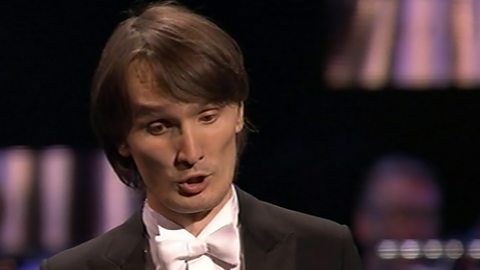
Michał Partyka from Poland, concert four
Michał Partyka from Poland sings in concert four.




